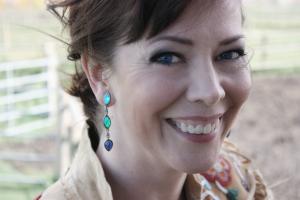Cami Ryan, Ph.D.
Social Sciences Lead, Monsanto Company
Expert Bio
I hold a Bachelor of Commerce, Biotechnology Management and a PhD in Interdisciplinary Studies (Agricultural Economics, Business and Sociology). Formerly a researcher with the College of Agriculture and Bioresources at the University of Saskatchewan, I am now the Social Sciences Lead with Monsanto Canada. This is a new position in Regulatory Policy & Scientific Affairs (RPSA) with the responsibility to strengthen relationships with social, behavioral and political scientists that influence public opinions on food, health and the environmental safety of agricultural technologies. In this role, I engage my scientific network in North America and around the world to talk about policy, regulations, and biotechnology acceptance, as well as question misinformation and promote the importance of agricultural innovations for meeting societal challenges.
Studies, Articles and Answers
Showing 3 out of 3 results
Question
A: The following excerpt from a blog by Dr. Cami Ryan, B. Comm., Ph. D., Departments of Plant Science & Bioresource Policy, Business & Economics, College of Agriculture, University of Saskatchewan, entitled “From 'I Smell a Rat' to 'When Pigs fly': Bad Science Makes Its Rounds," provides an overview of scientific reaction to this study. "From ‘I smell a rat‘ to ‘when pigs fly," bad science has been making the rounds of late. The multi-authored article 'A long-term toxicology study on pigs fed a combined genetically modified (GM) soy and GM maize diet' [re [...]
GMO Basics Health & SafetyQuestion
A: Industrial agriculture and agricultural companies – Monsanto, in particular – have been the subject of fear campaigns spearheaded by critics of GMOs. Much of what is outlined in these campaigns is lies and half-truths and it all makes companies like Monsanto look “bad.” Over the past two decades, critics of GMOs and genetic engineering use misinformation and “mythmaking” as a way to capture audience interest and influence public opinion about products of biotechnology and the companies and scientists that develop them. Behind much of this is [...]
Business Practices GMOs & FarmersQuestion
A: Roundup® brand herbicides have a long history of safe use at home and in agricultural settings, and we know that all labeled uses of glyphosate are safe for human health and supported by one of the most extensive worldwide human health databases ever put together on an agricultural product. As with most chemical products, appropriate precautions must be taken during handling, and use of these products and the directions for use must be followed carefully. Glyphosate-based herbicides (such as Roundup® brand herbicides) are not food products and are not meant to be consumed as a bev [...]
GMO Basics Health & Safety